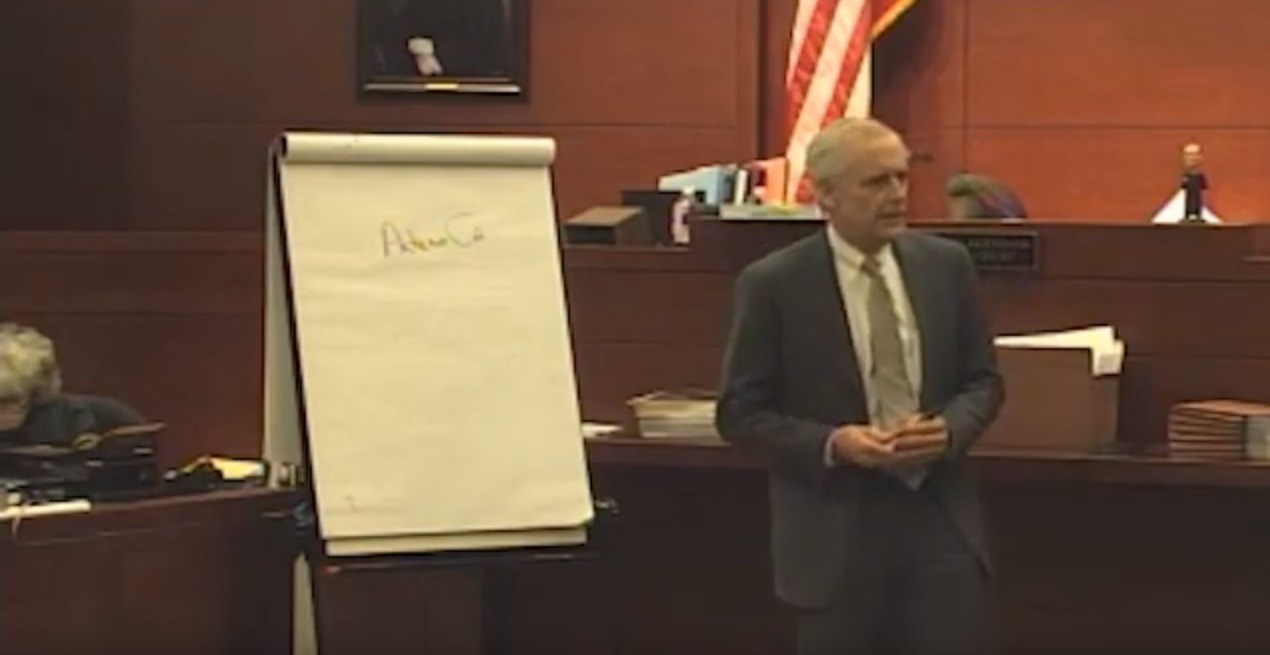

The Expert: Dr. Allan Kelly, an internist based in Fort Worth, Texas, testifies as to the patient’s general health, including follow up of cancer treatment, as well as the origin of bedsores.

In a case from Dallas County, Texas, in which the plaintiff sued a nursing home claiming negligence resulting in the development of decubitus ulcers, Dr. Allan Kelly, an internist from Fort Worth, testifies about ways in which advanced cancer and dementia cause unrelenting deterioration in a patient’s condition.
This patient had originally had moderately differentiated adenocarcinoma of the vagina which, over time deteriorated to become poorly differentiated on subsequent biopsies. This is a terminal illness. She had also developed dementia at a relatively young age [50-60 years old]. When occurring in a younger person, this is also a terminal illness. These facts were recognized by consulting physicians when they recommended hospice and terminal care for the patient. One of the doctors stated plainly that “there is no hope for meaningful recovery,” confirming that her condition had become terminal. Kelly speaks to the jury with plainly understood concepts that get his points across, supporting his belief that the patient had experienced a constant deterioration over a few years. By the time that her bedsores presented, she was in the final stages of her condition and these ulcers were a manifestation of that trajectory.
Tracing her history from the original diagnosis, Kelly points out objective evidence of the unrelenting deterioration. Using common lab tests, he shows that the hemoglobin, or blood count, fell continuously until it was half of its original value. This occurred despite a lack of significant bleeding. It was the result of bodily failures in response to terminal cancer.
Albumin, a protein indicative of health and the body’s ability to produce vital building blocks and repairing proteins, fell consistently each year from 2008 to 2012, beginning with a value of 4.5 and eventually reaching a very low value of 1.5, the revelation of a progressive, unrelenting deterioration in her health over the years until the process was in its final stages.
The expert then describes what occurs in the late stages of either cancer or dementia, as occurred with this patient. One feels generally very bad and eventually lands in bed, requiring assistance with the activities of living, such as changing clothes and sheets, cleaning, and feeding by hand. This patient had a decrease in functionality in the winter of 2009, when she could no longer walk without the assistance of a walker. The loss of the ability to walk is characteristic of the final stages of dementia. She also became incontinent, a condition which worsened over the years. These signs of deterioration occurred sequentially in this patient until the final stages were reached.
Terminal illnesses have skin manifestations as well. The most common are decubitus ulcers or bedsores. This occurs in skin exposed to pressure and the tissue is no longer strong enough to survive an insult or repair itself once broken down. The pressure from just sitting in a chair for an hour-and-a-half may lead to skin breakdown due to its weakness. Her cancer and dementia predisposed her to this type of breakdown.
The expert concluded that the patient’s problem with decubitus ulcers was one part of the sequential terminal events due to the pathological conditions that were killing her. The jury concurred, rendering a verdict for the defense.
Gary Gansar, MD, is residency-trained in general surgery. He served as Chief of Surgery and Staff at Elmwood Medical Center and on the Medical Executive Committee at Touro Infirmary and Mercy Hospital in New Orleans, LA. Dr. Gansar was Board Certified in general surgery while in active practice. He joined AMFS in 2015 as a Physician Medical Director.
The medical expert witness partner for attorneys serious about building a winning case
AMFS is your trusted source for highly-qualified medical expert witnesses. After pioneering the field nearly three decades ago, we’re continuing to redefine medical expert witness services by providing value far beyond a referral alone.
Our Physician Medical Directors know what it takes to build a strong case. Our medical expert witnesses leave no doubt. And our case managers streamline billing and logistics every step of the way, letting you focus on what you do best: constructing your winning case. Explore why AMFS clients expect more from their medical expert witnesses—and get it.
